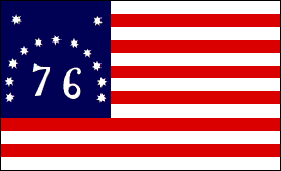Religious liberty and a thriving religious culture are defining attributes of the United States, characterizing the American order as much as its political system and market economy.[1] From the earliest settlements of the 17th century to the great social reform causes led by religious congregations in the late 19th century and again in the 20th century, religion has been a dominant theme of American life.
U.S. Historical Documents-A Chronology
The Magna Carta
1215: JOHN, by the grace of God King of England, Lord of Ireland, Duke of Normandy and Aquitaine, and Count of Anjou, to his archbishops, bishops, abbots, earls, barons, justices, foresters, sheriffs, stewards, servants, and to all his officials and loyal subjects, Greeting.
KNOW THAT BEFORE GOD, for the health of our soul and those of our ancestors and heirs, to the honour of God, the exaltation of the holy Church, and the better ordering of our kingdom, at the advice of our reverend fathers Stephen, archbishop of Canterbury, primate of all England, and cardinal of the holy Roman Church, Henry archbishop of Dublin, William bishop of London, Peter bishop of Winchester, Jocelin bishop of Bath and Glastonbury, Hugh bishop of Lincoln, Walter Bishop of Worcester, William bishop of Coventry, Benedict bishop of Rochester, Master Pandulf subdeacon and member of the papal household, Brother Aymeric master of the knighthood of the Temple in England, William Marshal earl of Pembroke, William earl of Salisbury, William earl of Warren, William earl of Arundel, Alan de Galloway constable of Scotland, Warin Fitz Gerald, Peter Fitz Herbert, Hubert de Burgh seneschal of Poitou, Hugh de Neville, Matthew Fitz Herbert, Thomas Basset, Alan Basset, Philip Daubeny, Robert de Roppeley, John Marshal, John Fitz Hugh, and other loyal subjects:
Milton Friedman-Free To Choose
The legendary PBS TV series “Free to Choose” (1980) by Nobel Prize-winning economist Milton Friedman is now available on Google Video for free (by courtesy of the Palmer R. Chitester Fund).
“The Road To Serfdom”-
F.A. Hayek
Finally, here is an edition of Road to Serfdom that does justice to its monumental status in the history of liberty. It contains a foreword by the editor of the Hayek Collected Works, Bruce Caldwell. Caldwell has added helpful explanatory notes and citation corrections, among other improvements. For this reason, the publisher decided to call this “the definitive edition.” It truly is.
Memo to Conservatives: Quit Apologizing for Capitalism
Everywhere we turn these days, it seems, leftists are undermining and attacking capitalism on moral grounds. Their criticisms are directed not at merely certain corrupt corporations or individuals who abuse the system, but at the system itself.
Sadly, few conservatives, even conservative Christians, are willing or prepared to defend capitalism’s virtues. Rather than tout it in terms of liberty, they sheepishly apologize for its allegedly inherent greed.
Is Envy More Important than Prosperity?
New York Congressman Anthony Weiner is making a name for himself.
He wants taxes raised on wealthy Americans and is one of the more vocal opponents to the deal that would retain current tax rates for everyone.
“An estate tax cut for millionaires adds exactly zero jobs. A tax cut for billionaires – virtually none,” says the congressman.
But what does Weiner know about job creation, about work, about being an entrepreneur?
Thatcher’s Britain returns 20 years after she fell
Britain is moving further to the Right after 13 years of Labour, it is disclosed today, as the public’s views on welfare become tougher than when Baroness Thatcher was prime minister.
Adam Smith(1723-1790)
With “The Wealth of Nations” Adam Smith installed himself as the leading expositor of economic thought. Currents of Adam Smith run through the works published by David Ricardo and Karl Marx in the nineteenth century, and by John Maynard Keynes and Milton Friedman in the twentieth.
Conservative vs. Liberal-An exercise
Most of the debate among liberals and conservatives in the United States is over specific issues, but very little attention is given to the underlying ideals and principles behind these ideologies. We state our case to support or oppose this or that, and we argue with people who disagree, but we almost never bring the argument down to the underlying political attitudes behind our opinions. As such we often misunderstand or mischaracterize each others’ positions, and the result is deep political polarization and a virtual inability to find common ground with one another. I think that a discussion about the fundamental differences between liberalism and conservatism is well worth having.








